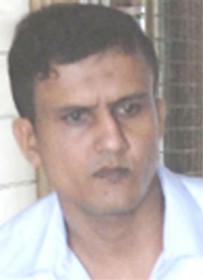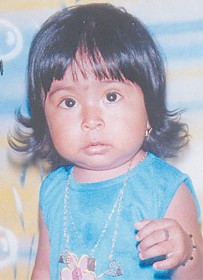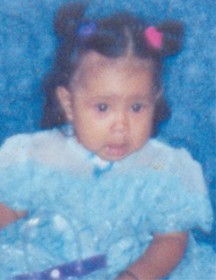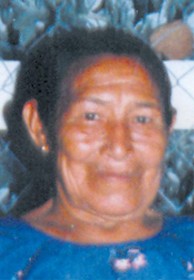Arshad Ali, who had been accused of setting fire to a One Mile, Parika home in May, 2006 which caused the deaths of three persons, was found not guilty by a jury last evening.

Ali’s trial commenced before Justice James Bovell-Drakes on June 15 and concluded yesterday when the jury, after several hours of deliberation, returned a unanimous verdict of not guilty. Ali, 32, of Good Hope, East Bank Essequibo had been charged with murdering 17-month-old Anida Bowling, three-year-old Devika Bowling and their 66-year-old grandmother Victoria Benjamin.
He had appeared before Magistrate Fazil Azeez at the Vreed-en-Hoop Magistrate’s Court charged with the murders. A preliminary inquiry was conducted and Ali was committed to stand trial in the High Court. Attorney-at-law Bernard De Santos represented Ali in the High Court.
Prithima Kissoon and Zamilla Ally prosecuted for the state and presented evidence showing that Ali had motive, was closely associated with the victims, and was present at the crime scene.
It was alleged that on May 9, 2006 at One Mile Parika, East Bank Essequibo Ali set fire to the house. The Bowling sisters and their grandmother perished in the early morning fire. Glarey Bowling, the girls’ mother, was also seriously injured and died in December last year.

Glarey Bowling’s daughter Onika Thomas, who had married Ali according to Muslim rights during 2004, had testified that he had threatened to kill her, burn down their house and kill himself. During his summation of the case yesterday the judge said that Onika lived with Ali at his parents’ house for a year after their marriage and then left.
The woman, Justice Bovell-Drakes said, returned to her parents’ home and one week later Ali showed up there. He built a house and evidence provided to the court showed that Onika’s father made contributions to the building. However, several months after the couple moved into their new house Onika testified, she again left.
Some time later, the woman had told the court, she saw Ali at the Parika Market where they had a short conversation. Onika testified that Ali asked her “to come back” but she refused and the man asked her “What will happen to us?” The woman said she’d replied, “I don’t know what will happen to us but you will have to give back the money you borrowed from my father.”
“This gentleman,” the judge told the jury yesterday morning, “was deeply in love with her.”

The judge continued to say that the Parika Market confrontation was not the first time Ali made contact with Onika, according to her testimony. There was a subsequent phone call, which she said Ali had told her he made from a phone booth. During that conversation he again asked her to return but she refused. It was after her refusal that she said Ali made the threats.
At this point Justice Bovell-Drakes explained to the jury that they needed to be sure that Ali “said those things”. He pointed out that while the prosecution led evidence to show that Onika recognized Ali’s voice they failed to provide phone records showing that the phone call was made. Further, he said that the phone call was made the month before the incident but it was unclear exactly when.
The next witness to testify in the trial was Orissa Bowen, Onika’s sister, who the judge said gave a detailed view of the setting where the alleged crime had occurred. Orissa had testified that her grandmother slept on a mattress about 12 inches away from her mother and two sisters who perished in the fire. It was noted by the judge that although the young woman said 12 inches when she displayed the distance to the court it amounted to 18 inches.

Later on in her testimony she said she saw Ali on May 9, 2006 and was startled; the first time she saw him he was four feet away from the house.
Orissa told the court that the second time she saw Ali he was backing her and he was some 10 yards away from her, fleeing the scene. According to her, she had known the man long enough and spent enough time with him to be able to identify him from the rear and there was enough light from the blazing house to see him.
While Orissa might be confident it was Ali she saw, the judge pointed out it might have been possible that she was mistaken. He advised the jury to consider the young woman’s state of mind at the time she saw “the man” fleeing. He further pointed out that the witness did not say she saw Ali throw anything inside the house.
The judge’s summation of the case continued well after 3 pm yesterday and after approximately three hours of deliberation the not-guilty verdict was returned by the jury. Justice Bovell-Drakes had told the jury yesterday that if there was no evidence to prove that Ali had said something or done something then he must be given the benefit of the doubt.
After being incarcerated since May 2006 Ali walked out of the court yesterday once again a free man.




